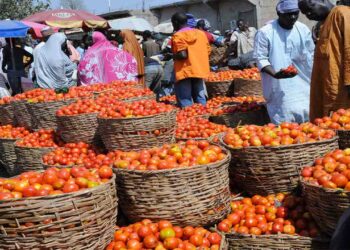In a sobering update, the United Nations has reported that approximately 733 million people experienced hunger globally in 2023, with a particularly stark impact in Africa where one in five individuals faced food insecurity. This data, released in the State of Food Security and Nutrition in the World (SOFI) report, highlights significant challenges in achieving Sustainable Development Goal (SDG) 2, Zero Hunger, by 2030.
The report, unveiled during the G20 Global Alliance against Hunger and Poverty Task Force Ministerial Meeting in Brazil, underscores a troubling regression to hunger levels not seen since 2008-2009. The global community appears to have backtracked 15 years in its progress against hunger.
Although there has been some advancement in areas such as reducing stunting and increasing exclusive breastfeeding, the global fight against hunger has stalled. The number of undernourished people has remained steady for three years, with estimates ranging between 713 and 757 million for 2023, a significant rise from the 2019 figures.
Regional variations reveal alarming trends: Africa’s hunger rate has risen to 20.4 per cent, while Asia’s remains at 8.1 per cent. Despite a stable hunger rate, Asia still houses more than half of the world’s hungry. Conversely, Latin America has made progress, reducing its hunger rate to 6.2 per cent. However, Western Asia, the Caribbean, and most African subregions saw increases in hunger from 2022 to 2023.
The report warns that if current trends persist, approximately 582 million people could be chronically undernourished by 2030, with half residing in Africa. This projection reflects stagnation similar to the situation when the Sustainable Development Goals were first adopted in 2015.
Food access remains a critical issue, with 2.33 billion people experiencing moderate or severe food insecurity in 2023. This figure has remained largely unchanged since the onset of the COVID-19 pandemic. Among these, over 864 million people faced severe food insecurity, often going without food for entire days. Africa, in particular, continues to struggle, with 58 per cent of its population facing moderate or severe food insecurity.





